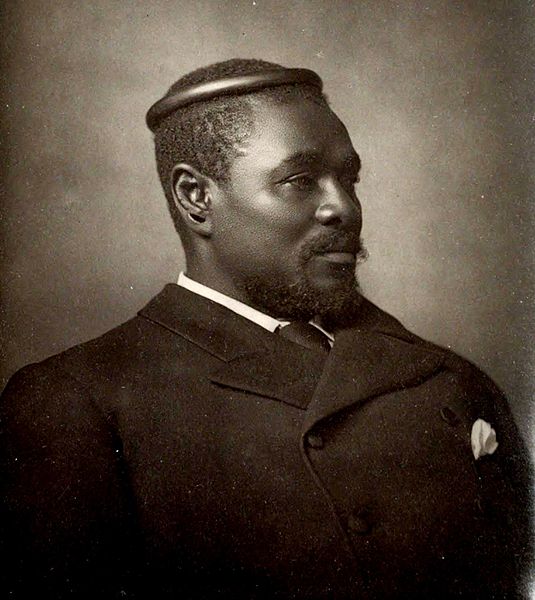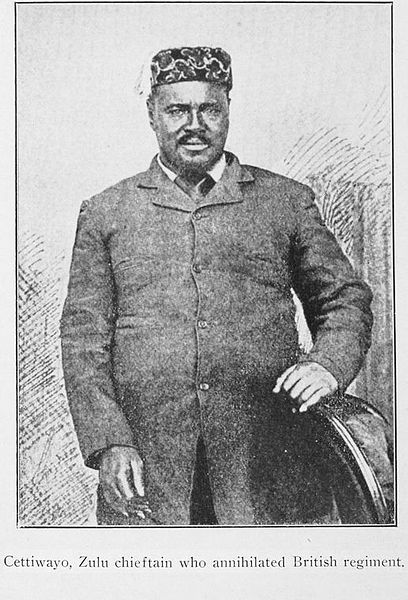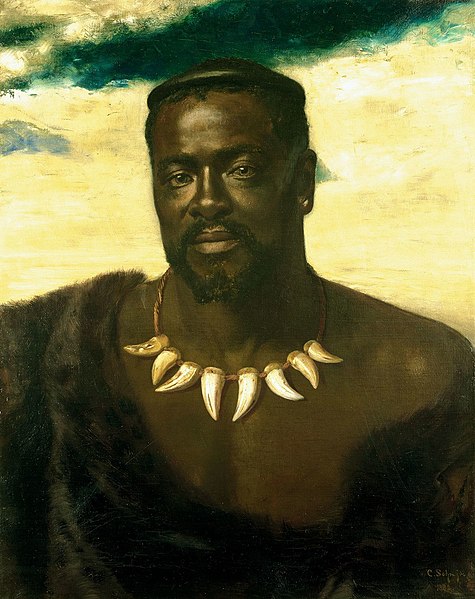Cetshwayo kaMpande was the king of the Zulu Kingdom from 1873 to 1884 and its Commander in Chief during the Anglo-Zulu War of 1879. His name has been transliterated as Cetawayo, Cetewayo, Cetywajo and Ketchwayo. Cetshwayo consistently opposed the war and sought fruitlessly to make peace with the British and was defeated and exiled following the Zulu defeat in the war. He was later allowed to return to Zululand, where he died in 1884.
Photograph of Cetshwayo by Alexander Bassano in Old Bond Street, London
Cetshwayo c.1875.
Cetshwayo (called Cettiwayo in the caption of the photo above), in Cape Town shortly after his capture in the 1879 Anglo-Zulu War. He was exiled from Southern Africa after his capture, although eventually allowed to return by the British government.
Cetshwayo visited England in 1882 when this portrait was painted by Karl Rudolf Sohn.
The Zulu Kingdom, sometimes referred to as the Zulu Empire or the Kingdom of Zululand, was a monarchy in Southern Africa. During the 1810s, Shaka established a standing army that consolidated rival clans and built a large following which ruled a wide expanse of Southern Africa that extended along the coast of the Indian Ocean from the Tugela River in the south to the Pongola River in the north.
Drawing of King Shaka (c. 1824)
Military innovations such as the assegai, the age-grade regimental system and encirclement tactics helped make the Zulu one of the most powerful clans in southern and south-eastern Africa.
The Battle of Isandlwana, 1879
King Cetshwayo (c. 1875)







